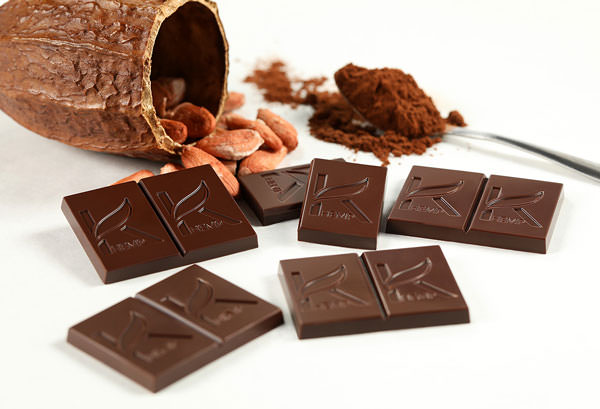THE ABCs OF CBD
Natural cure-all craze hits Reno-Tahoe.
In many of the world’s cultures it’s believed that Mother Nature provides humans with the cure for any ailment. In the U.S., a naturally occurring chemical that may have such curative properties recently gained approval from the federal government to be cultivated and sold to the public. The substance is cannabidiol, or CBD, which is found in the hemp plant.
Hemp cultivation is one of the world’s oldest industries, with evidence going back more than 10,000 years. America’s founding fathers even grew hemp. During World War II, the U.S. Department of Agriculture released a film titled Hemp for Victory, which encouraged the active propagation of hemp — a valuable fiber that was in limited supply during wartime.
And then it was banned. Propaganda spread fear about the dreaded marijuana plant — a sentiment that has lingered, causing generations of people (including those who could most benefit from CBD’s potential) to avoid it, worried it will make them high.
It won’t.
Thanks to the Agriculture Improvement Act of 2018, often called the 2018 Farm Bill — part of which included a measure that deregulated the farming and transportation of hemp and designated it as an agricultural commodity — CBD education, research, and product distribution now can progress. Hemp-based, non-psychotropic cannabis, including its byproduct CBD, is no longer considered a Schedule 1 drug under the purview of the Controlled Substances Act.
Hemp’s newfound legality is propelling research into CBD’s health benefits on an exponential scale. But when it comes to how it’s used, the legal landscape is ever changing.
With the country’s current opioid crisis and over-reliance on pharmaceuticals, wouldn’t it make sense to explore the physical and mental benefits of consuming a natural product?
Our bodies and CBD
As the U.S. Food and Drug Administration states, “CBD is a chemical component of the Cannabis sativa plant, more commonly known as marijuana. However, CBD does not cause intoxication or euphoria (the “high”) that comes from tetrahydrocannabinol (THC) … It is THC (and not CBD) that is the primary psychoactive component of marijuana.”
CBD is a chemical compound isolate that must be extracted, concentrated, and consumed or used topically to provide purported medicinal benefits. It has miniscule THC content. Legally, it must contain less than 0.3 percent THC.
Human bodies are formed with an endocannabinoid system, or ECS, which includes receptors for cannabinoids such as CBD. Mollie Amato, a registered nurse specializing in mental health and detox, co-owns One Love CBD in Reno with her husband, Vincenzo Amato. To illustrate the receptor concept, Mollie says to think of tree branches, with a flickering light at the end of each branch. Imagine that these lights are neurotransmitter receptors firing, perhaps because of insomnia, pain, or anxiety. She explains that CBD somehow travels to the receptors that need it, which is why it seems to be so effective for many different maladies.
In fact, the National Institutes of Health reports that the naturally occurring compounds found in hemp called phytocannabinoids, which include CBD, “have a powerful therapeutic potential in a variety of ailments primarily through their interaction with the ECS. CBD is of particular interest due to its wide-ranging capabilities and lack of side effects in a variety of neurological conditions and diseases.”
New heights
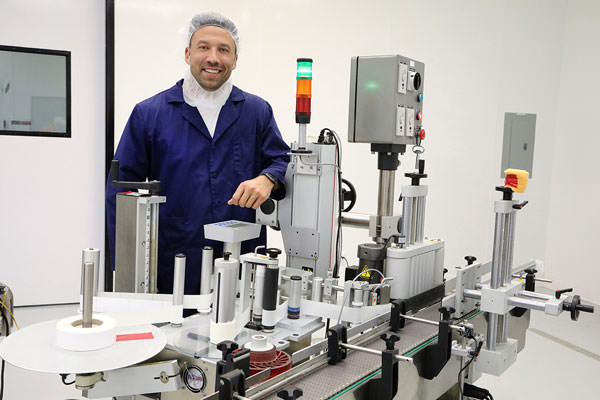
Michael Brubeck, CEO and founder of Centuria Foods in Dayton, stands at a labeling station
The positive medical effects of CBD now are being officially recognized. In June 2018, the FDA approved the first drug containing a purified, marijuana-derived substance, Epidiolex, for seizures associated with two rare and severe forms of epilepsy.
But with legalization comes regulation. While CBD is federally permitted, states set their own rules on its sales and use. In July, Nevada officials outlawed CBD’s inclusion in ingestible products and called for retail stores, bars, eateries, and coffee shops to stop selling or serving them (though cannabis dispensaries are allowed to continue selling these products).
As with most natural nutritional supplements, currently no assertions can be made on CBD product labels about its efficacy for mental and physical health. Labeling is now under FDA’s purview.
But no law can stop the wave of support from those who report having positive personal experiences with CBD, including those in the Reno-Tahoe region. Consumers of locally produced CBD products frequently share personal accounts of how CBD has helped with serious health and mental issues. Purported to alleviate everything from arthritis to insomnia, cancer symptoms, the adverse effects of cancer treatments, and post-traumatic stress disorder, CBD might just be a cure-all, but its full effects have yet to be seen.
Dorinda, Dillon, and Dustin Vance — known for their local, organic, high-end, fine chocolate business with two Reno retail shops — are owners of Reno-based LiveKAYA. With LiveKAYA, they produce a chocolate-flavored, full-spectrum hemp oil infusion, probiotic chocolate (sans CBD), as well as CBD-infused chocolates (currently on hold for distribution), which are only available through their network marketing business. Full spectrum products contain not just CBD, but also other existing terpenes and cannabinoids present in hemp oil. It’s called the “entourage effect” when the whole hemp plant, including 0.3% THC — some are made sans THC — is within a product, with CBD leading the percentages and all the components work together.
Many producers say it provides much better results than simple CBD isolates because of all the chemical compounds within the hemp plant operating in unison, as nature intended. Others find relief with the CBD isolates. It’s about trial and error, finding what is most helpful for each individual’s ailments.
Dorinda became a believer while working with dispensaries to create THC-infused chocolates just after the marijuana dispensaries became legal, and she saw an opportunity to start infusing her chocolates with CBD just in time for the market to take off. She tried CBD herself to see if it would alleviate the pain and inflammation she was experiencing due to a lack of knee cartilage, as well as difficulty breathing caused by a broken nose — but without the high, so she could run her business’ day-to-day operations. She felt its pain- and inflammation-relieving effects quickly and decided to start LiveKAYA to help others with their issues. Furthermore, the Vance team chose to offer a comprehensive, commission-based sales platform to give customers access to an industry projected to generate billions, effectively sharing the wealth with the consumer.
Such experiences drive many to enter this fledgling industry, which seemingly has vast potential. Vincenzo Amato, for example, used a cannabinoid to replace a plethora of opiates he was prescribed after a spiral fracture of his femur.
Accuracy in labeling is critical with ingestible or topical products. Considering all humans consume — chemicals, additives, preservatives, pesticides, and genetically modified organisms — you might wonder why processed foods are not examined under the same microscope as is used for CBD.
Few people would claim such ingredients as high-fructose corn syrup or GMOs have improved their lives, but at least their use must be declared on labels.
What is under heavy scrutiny are the labels, which can translate into a big expense for small manufacturers who must adhere to evolving regulatory guidelines.
“We’re honest and really transparent with everything in our products … that’s what matters most,” Mollie Amato says. “I know for a fact there are a lot of CBD companies out there that are not telling people the truth, so we want to be as clear and conscientious with that as possible.”
Within the cannabinoid industry, regulated labeling may help consumers decipher what they’re purchasing. Because other ingredients often are added to products, and because outrageous — albeit illegal — claims often are made by some CBD producers, labeling can be crucial.
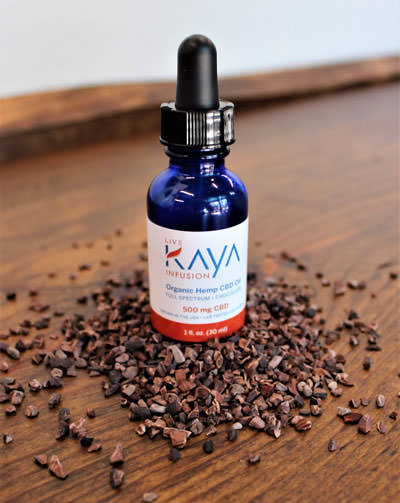
Reno-based LiveKAYA, from the owner of Dorinda’s Chocolates, produces a chocolate-flavored, full-spectrum hemp oil infusion, probiotic chocolate (sans CBD), as well as CBD-infused chocolates (as of early August it was on hold for distribution awaiting FDA rules on ingestible CBD products)
Major CBD players
A recent report by Cowen Inc., an independent financial services firm, projected the U.S. cannabis industry will generate about $75 billion in gross sales by 2030.
“Any projections you come across are going to identify the market cap of cannabis, hemp, or CBD as being in the billions. Just how many billion exactly? It’s tough to say because we are dealing with so many variables,” says Shoshanna Silverberg, director of strategy for Pistil and Stigma, a Reno-based national consulting firm specializing in cannabis. “And that’s due to the constantly evolving regulatory environment, in large part. In that sense, it’s more about the scale of opportunity … at the core of any financial analysis, not necessarily the precise numbers or projected timetables … because the demand is what is exponential.”
Gorillas in the food-and-drink industry, including major beer companies and soda manufacturers, are experimenting with CBD in their products. One major player in the non-consumables space in Reno-Tahoe is Centuria Foods, which relocated to Dayton, Nev., in 2019 from the Czech Republic. CEO and founder Michael Brubeck was one of the first to enter the medical marijuana industry in 2005 by starting, acquiring, and eventually selling 14 legal dispensaries in California’s Bay Area.
Because of the dramatic stories of healing shared by his medical marijuana clients, Brubeck decided to focus on researching and manufacturing the isolates present in cannabinoids, forming Centuria in 2014 in Europe, where the research and production environment for cannabis was more friendly.
Wooed by the Northern Nevada Development Authority and the state’s business-friendly environment, along with the passage of the U.S. Farm Bill in 2018, Brubeck moved his entire operation into the 55,000-square-foot facility that can process about 22,000 metric tons of hemp per year, with another 40,000-square-foot structure opening its doors later this year.
Centuria has hired 41 people so far, many with advanced degrees from the University of Nevada, Reno, with the addition of another 200 jobs expected in the next three years.
This manufacturer of non-GMO, organic, kosher CBD products such as tinctures and vape cartridges sells these items to wholesalers and retailers. And sales of the products are licensed by federal agencies, including the Department of Homeland Security and the FDA.
The company uses proprietary technology to convert THC into a benign, unconvertible molecule, leaving just the cannabinoids. Centuria’s in-house team of scientists, laboratory specialists, research and development experts, and attorneys has been conducting business on four continents since 2014.
“We’re manufacturing products that make extraordinary changes in the lives of others,” Brubeck says.
Brubeck’s professional past navigating the heavily regulated financial industry translated well to the hemp business.
“I think the biggest thing I can do to advocate for this industry is to bring a higher level of professionalism to it. Not being a smoker myself, I wasn’t a hobbyist who became involved in this business. I went from founding a federally chartered bank to (founding) multi-unit medical marijuana operations,” Brubeck says.
Cottage-industry enterprises forged by cannabinoid believers also are now able to morph into thriving local businesses.
“We’re as mom and pop as it gets,” says Vincenzo Amato.
The business he and Mollie founded in 2018 sells products sourced from a Colorado-based company and industry leader, Folium Biosciences, which are third-party tested with results made public to ensure full transparency.
“Not all hemp is created equal,” Mollie asserts. “Our No. 1 focus is to make sure people are giving themselves the most beneficial product, whether it’s ours or not. We want people and their animals to feel better, bottom line.”
The Amatos share the story of a woman suffering from severe arthritis who, despite previously being skeptical, slathered a One Love tincture on her hands and returned the next day in joyful tears, wanting to buy every bottle off the shelf. It literally had helped her overnight.
A friend’s pet had a seizure before Vincenzo’s eyes. He grabbed his tincture, placed a dropperful in the dog’s mouth, and six seconds later the seizure stopped. That was the moment he realized it could be a near-miraculous cure for some, including animals.
While the Amatos have seen CBD’s life-changing, healing benefits firsthand, plus in customers and their pets, they’re also bound by the tumultuous legal labeling landscape requiring producers to alter their often-pricey packaging runs as the state’s regulations change. When the industry was fresh, some CBD product labels suggested the cannabinoid could offer relief for pets suffering from various ailments, or potentially similar effects for humans. Now, as the FDA and individual states get their footing in this new legal environment, no claims of health benefits for anyone — no matter the species — can be made on labels.
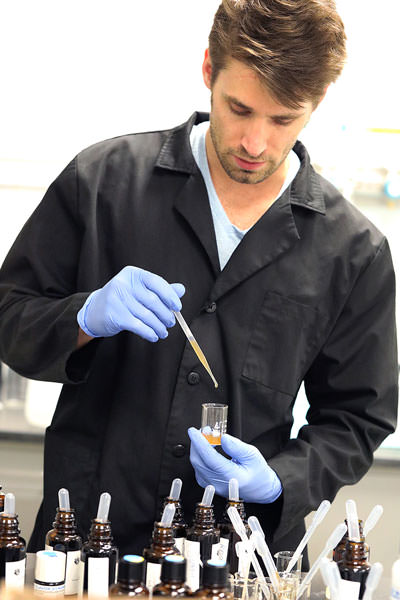
Kevin Schmidt, director of research and development at Centuria, takes samples of flavor formulations
What to look for
Those in the CBD business are awaiting labeling, usage, and dosage recommendations from the FDA. It’s tough to advance when so much still is in flux.
“We’re being proactive and waiting for the FDA to make their decision, focusing on safety, and staying within FDA guidelines,” says Dillon Vance, vice president of operations for LiveKAYA.
Meanwhile, education is key with CBD.
The Amatos adamantly recommend doing your research when choosing CBD products and offer suggestions for doing so.
- Confirm the glass tincture bottles are coated to prevent ultraviolet light from breaking down the contents.
- Look for proffered, certified test results from third-party labs, to compare products side by side.
- Look at the results’ cannabinoid section and make sure the level of THC detected is at or below 0.3 percent. A certificate of quality assurance should be present, confirming the only active ingredient is CBD.
- Check where the hemp is sourced — not just the state but the actual farm — and research it to be sure you’re getting quality, organic, pesticide-free, phytocannabinoid-rich (PCR) hemp; industrial hemp is great for building things, but you don’t want to ingest it.
Help the cause
Believers in CBD’s advantageous effects can help take the reins regarding regulation. Some advocate through civil engagement.
Silverberg is excited these conversations now can be had in this country. Cannabinoids and their positive effects now are bringing different, and often unexpected, factions together. She says to become more active CBD proponents, people can communicate with city or state lawmakers; look at the FDA website to find scheduled hearings to attend; or research companies to find those with similar values and beliefs and offer advocacy directly to them, or find out what can be done to help them.
As she exuberantly points out, “We’ve made it a right to consume cannabis.”
Now it’s up to the public to continue fighting for that right.
Natasha Bourlin had many questions about CBD, all of which were answered through writing this story and independent research, making her a believer in its benefits.
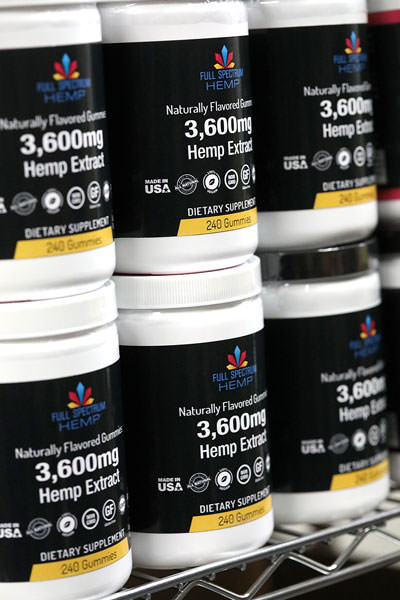
Ten-milligram gummies are among the most popular items Centuria sells
RESOURCES
CBD Retailers
LiveKAYA
Livekaya.com
One Love CBD
Onelovecbd.com
CBD Wholesalers
Centuria Foods
Centuriafoods.com
For details about hemp, CBD, and the laws and research on them, visit the following resources:
The Rodale Institute provides details about studies on growing hemp: Rodaleinstitute.org
Economic impact report produced by investment research firm Cowen Inc.: Cowen.com/reports/cowen-collective-view-of-cbd
Neuroscientific research on cannabinoids from the National Institutes of Health: Ncbi.nlm.nih.gov/pmc/articles/pmc5938896
FDA cannabis regulations:
For details on advocacy of CBD, visit Pistil + Stigma at Pistilandstigma.com.
The Hemp Industries Association is a nonprofit trade association representing more than 1,500 farming, business, and advocacy members in the industry: Thehia.org
